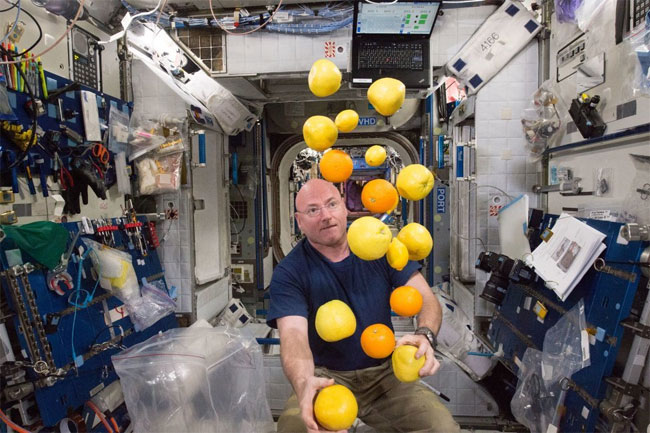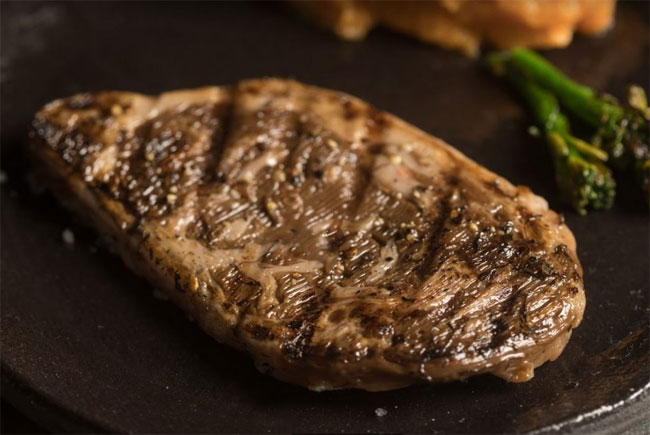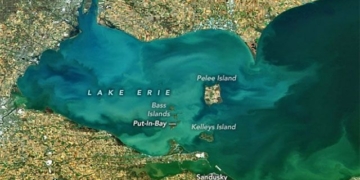3D-printed steak, insect protein, and mushrooms are some of the unique ideas presented by the winners of NASA’s food competition for space.
The U.S. space agency NASA has selected 18 companies to continue developing space food that future astronauts will use on long-term missions, such as journeys to Mars or other planets.

NASA astronaut Scott Kelly with fresh fruits during a rare shipment to the International Space Station (ISS).
Grace Douglas, NASA’s leading scientist on advanced food technology at the Johnson Space Center in Houston, stated that NASA needs new food ideas that make the best use of limited resources and generate as little waste as possible.
The NASA space food competition received many unique solutions aimed at ensuring the health of future astronauts. NASA announced that over 10 organizations will receive $25,000 to further develop their space food solutions.
Ralph Fritsche, senior project director at NASA for crop production in space, mentioned that NASA has been focusing on various solutions to create palatable food for astronauts, but they believe that innovation requires many new approaches.
He noted that the competition received approximately 100 unique ideas and will be evaluated by a judging panel consisting of 10 experienced staff members with expertise in NASA’s food production.

The 3D-printed steak is being considered as food for astronauts on future missions.
One of the most impressive ideas is a 3D-printed steak proposed by a California-based company. The company successfully 3D-printed a ribeye steak in February 2021, with actor Leonardo DiCaprio and former astronaut Karen Nyberg participating in the taste test.
The concept combining mushrooms, algae, and plants from the startup Cosmic Eats in Cary, NC, was also highly rated.
Additionally, other winning ideas include: Astra Gastronomy from San Francisco with a crunchy snack mixed with nuts and other ingredients; Space Bread from Hawthorne, Florida, which developed a plastic pouch that allows astronauts to mix, store, and bake ingredients into bread in space; Deep Space Entomoculture from Somerville, Massachusetts, creating products containing protein and fat from insect cells; and Hefvin in Bethesda, Maryland, producing berries by culturing fruit cells in a nutrient-rich environment…


















































